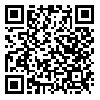1. 1. Bennich BB, Munch L, Egerod I, Konradsen H, Ladelund S, Knop FK, et al. Patient assessment of family function, glycemic control and quality of life in adult patients with type 2 diabetes and incipient complications. Can J Diabetes. 2019;43(3):193–200. [
DOI]
2. 2. Nini Shuhaida MH, Siti Suhaila MY, Azidah KA, Norhayati NM, Nani D, Juliawati M. Depression, anxiety, stress and socio-demographic factors for poor glycaemic control in patients with type II diabetes. J Taibah Univ Med Sci. 2019;14(3):268–76. [
DOI]
3. 3. Nicolau J, Simó R, Conchillo C, Sanchís P, Blanco J, Romerosa JM, et al. Differences in the cluster of depressive symptoms between subjects with type 2 diabetes and individuals with a major depressive disorder and without diabetes. J Endocrinol Invest. 2019;42(8):881–8. [
DOI]
4. 4. van der Donk LJ, Fleer J, Sanderman R, Emmelkamp PMG, Links TP, Tovote KA, et al. Is type of depressive symptoms associated with patient-perceived need for professional psychological care in depressed individuals with diabetes? PLoS One. 2019;14(2):e0212304. [
DOI]
5. 5. Li H, Ji M, Scott P, Dunbar-Jacob JM. The effect of symptom clusters on quality of life among patients with type 2 diabetes. Diabetes Educ. 2019;45(3):287–94. [
DOI]
6. 6. Bruno BA, Choi D, Thorpe KE, Yu CH. Relationship among diabetes distress, decisional conflict, quality of life, and patient perception of chronic illness care in a cohort of patients with type 2 diabetes and other comorbidities. Diabetes Care. 2019;42(7):1170–7. [
DOI]
7. 7. Danhauer SC, Brenes GA, Levine BJ, Young L, Tindle HA, Addington EL, et al. Variability in sleep disturbance, physical activity and quality of life by level of depressive symptoms in women with Type 2 diabetes. Diabet Med. 2019;36(9):1149–57. [
DOI]
8. 8. Shah BM, Mezzio DJ, Ho J, Ip EJ. Association of ABC (HbA1c, blood pressure, LDL-cholesterol) goal attainment with depression and health-related quality of life among adults with type 2 diabetes. J Diabetes Complications. 2015;29(6):794–800. [
DOI]
9. 9. Wells A. Metacognitive therapy for anxiety and depression. Akbari M, Andooz Z, Majidi A. (Persian translator). Tehran: Arjmand Pub; 2015.
10. 10. Ashoori J. The effects of meta-cognitive therapy on generalized anxiety disorder and depression among patients with type II diabetes. Journal of Diabetes Nursing. 2015;3(2):19–29. [Persian] [
Article]
11. 11. Glasser W. Reality therapy: a new approach to psychiatry. Sahebi A. (Persian translator). Tehran: Saye Sokhan Pub; 2017, pp: 24–31.
12. 12. Farshchi N, Kiani Q, Chiti H. Effectiveness of group therapy reality in reducing depression, anxiety and increased compliance to treatment in patients with diabetic type 1. Journal of Advances in Medical and Biomedical Research. 2018;26(117):74–85. [Persian] [
Article]
13. 13. Delavar A. Research methods in psychology and educational sciences. Tehran: Virayesh Pub; 2007. [Persian]
14. 14. Beck AT, Steer RA, Brown GK. Manual for the Beck Depression Inventory-II. San Antonio, TX: Psychological Corporation; 1996.
15. 15. Beck AT, Steer RA, Carbin MG. Psychometric properties of the Beck Depression Inventory: Twenty-five years of evaluation. Clinical Psychology Review. 1988;8(1):77–100. [
DOI]
16. 16. Hamidi R, Fekrizadeh Z, Azadbakht M, Garmaroudi G, Taheri Tanjani P, Fathizadeh S, et al. Validity and reliability Beck Depression Inventory-II among the Iranian elderly population. J Sabzevar Uni Med Sci. 2015;22(1):189–98. [Persian] [
Article]
17. 17. Ware JE, Sherbourne CD. The MOS 36-item short-form health survey (SF-36). I. Conceptual framework and item selection. Med Care. 1992;30(6):473–83.
18. 18. Montazeri A, Goshtasebi A, Vahdaninia M, Gandek B. The Short Form Health Survey (SF-36): translation and validation study of the Iranian version. Qual Life Res. 2005;14(3):875–82. [
DOI]
19. 19. Hinkle JL, Cheever KH. Brunner LS. Brunner & Suddarth's textbook of medical-surgical nursing. 13th edition. Philadelphia: Lippincott Williams & Wilkins; 2013.
20. 20. Jelinek L, Van Quaquebeke N, Moritz S. Cognitive and metacognitive mechanisms of change in metacognitive training for depression. Scientific Reports. 2017;7(1):3449. [
DOI]
21. 21. Normann N, van Emmerik AAP, Morina N. The efficacy of metacognitive therapy for anxiety and depression: a meta-analytic review. Depress Anxiety. 2014;31(5):402–11. [
DOI]
22. 22. Solem S, Edward Ottesen Kennair L, Hagen R, Havnen A, Nordahl HM, Wells A, et al. Metacognitive therapy for depression: A 3-year follow-up study assessing recovery, relapse, work force participation, and quality of life. Fronti Psychol. 2019;10:2908. https://doi.org/10.3389/fpsyg.2019.02908
23. 23. Glasser C. A choice theory psychology guide to happiness: how to make yourself happy (the choice theory in action series). Independently Published; 2019.
24. 24. Barzegar Damadi MA, Mirzaian B, Akha O, Hosseini H, Jadidi M. Effect of cognitive-behavioral group therapy on hba1c, self-efficacy, depression, illness perception, and quality of life in patients with type II diabetes. J Mazandaran Uni Med Sci. 2018;27(158):87–100. [
Article]
25. 25. van Son J, Nyklícek I, Pop VJ, Blonk MC, Erdtsieck RJ, Spooren PF, et al. The effects of a mindfulness-based intervention on emotional distress, quality of life, and HbA(1c) in outpatients with diabetes (DiaMind): a randomized controlled trial. Diabetes Care. 2013;36(4):823–30. [
DOI]
26. 26. van Bastelaar KMP, Pouwer F, Cuijpers P, Riper H, Snoek FJ. Web-based depression treatment for type 1 and type 2 diabetic patients: a randomized, controlled trial. Diabetes Care. 2011;34(2):320–5. [
DOI]
27. 27. Hartmann M, Kopf S, Kircher C, Faude-Lang V, Djuric Z, Augstein F, et al. Sustained effects of a mindfulness-based stress-reduction intervention in type 2 diabetic patients: design and first results of a randomized controlled trial (the Heidelberger Diabetes and Stress-study). Diabetes Care. 2012;35(5):945–7. [
DOI]







